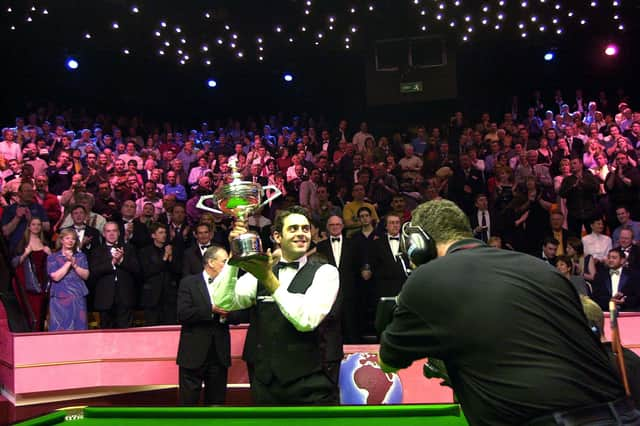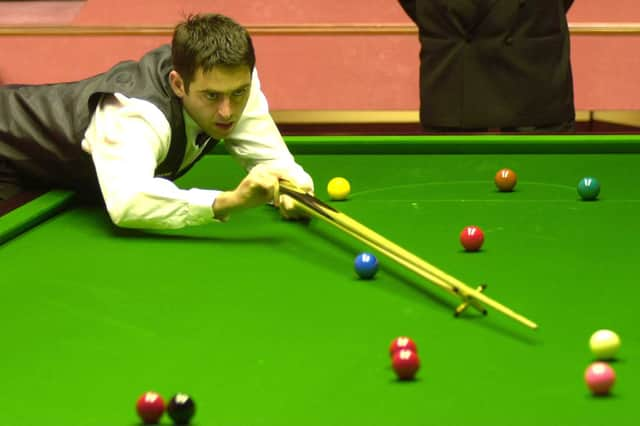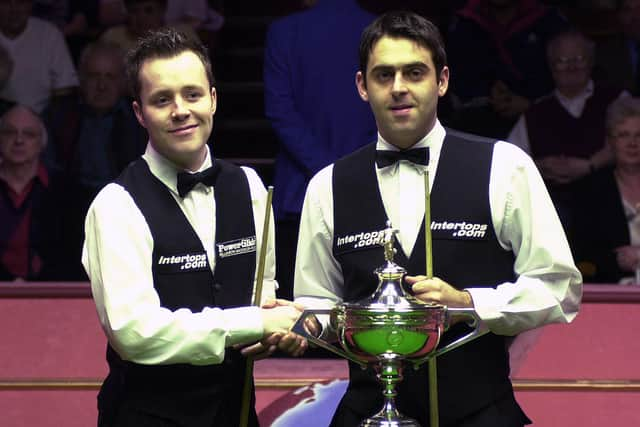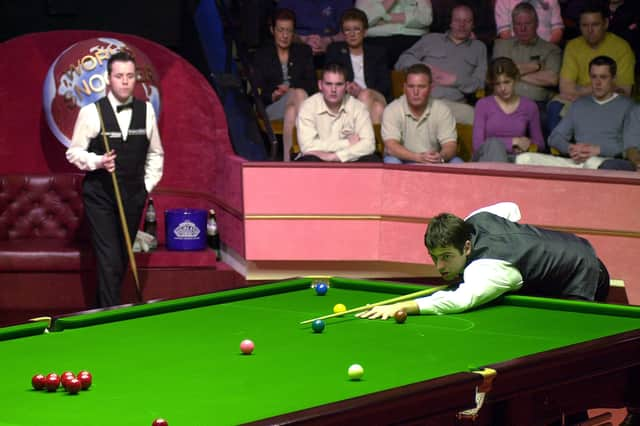Looking back at Ronnie O’Sullivan’s First World Snooker Championship Title Victory


Ronnie O'Sullivan was made to serve a Crucible apprenticeship before winning snooker’s ultimate prize for the first time in 2001.
During his rookie season on the top tier, O’Sullivan won ten qualifying matches to reach the main stages in Sheffield for the 1993 World Championship. He lost to Alan McManus in the opening round on his Crucible Theatre debut, but it was apparent he was here to stay, and has appeared on snooker’s grandest stage every year since.
Advertisement
Advertisement
Despite having collected a plethora of major titles - including two UK Championships and a Masters - in the 1990s, ‘The Rocket’ had to wait until the new millennium to reach his first world final.
O’Sullivan defeated 1985 champion Dennis Taylor to get his first match win at the Crucible in 1994, although he was subsequently brushed aside by 1991 champion John Parrott 13-3 in the last 16.
Progress was made by O’Sullivan in the next few years – a passage that included his record-breaking maximum 147 break - but he was still falling short in his pursuit of the trophy, losing three semi-finals in the space of four years to Peter Ebdon (1996), John Higgins (1998) and Stephen Hendry (1999).
At the first World Championship of the new millennium, O’Sullivan’s world title count remained at zero following a 10-9 opening round loss to qualifier David Gray.
Advertisement
Advertisement
Given his natural talent and triumphs elsewhere on the professional scene, questions were being posed as to whether O’Sullivan had the temperament to sustain a world title-winning challenge across the gruelling 17-day examination. In comparison, fellow ‘Class of 92’ contemporaries Higgins and Mark Williams had already tasted Crucible glory.


A 25-year-old O’Sullivan travelled to Yorkshire in 2001 better mentally equipped for the two-and-a-half-week rollercoaster than ever before. It had been an incredible season for ‘The Essex Exocet’ with four big titles already in the bag; the Champions Cup, Scottish Masters, China Open and Irish Masters.
The weight of expectation may have been heavy, but O’Sullivan passed his first test, a tricky opening round tie against former semi-finalist Andy Hicks, advancing with a comfortable 10-2 victory.
Serene progression continued as he eliminated both Dave Harold and Peter Ebdon in the last 16 and quarter-finals, respectively, with 13-6 wins. O’Sullivan also had spare change as he managed to break his semi-final duck with a 17-11 success over Joe Swail, who was featuring at that stage of the tournament in back-to-back years.
Advertisement
Advertisement
Meeting O’Sullivan in a two-day blockbuster showpiece was Higgins, who emerged from a thrilling 17-15 tussle with Matthew Stevens the night before.


Higgins got in first in the opening frame, but after going in-off, O’Sullivan capitalised and settled down as he crafted a successful counter-attack of 88. The Englishman continued to look the part throughout that first session, establishing a 6-2 advantage come the end of it.
In the evening session, Higgins won the first mini-session to reduce the gap to two, but O’Sullivan responded in kind to reassert a four-frame buffer and lead 10-6 overnight.
Returning for the biggest day of his career, O’Sullivan showed no signs of wilting as he gained stronger control of the tie by stretching his lead to 14-7, at one point putting together a run of 362 unanswered points.
Advertisement
Advertisement
With his opponent now on the final stretch, Higgins rallied, applying pressure to the maiden finalist by notching up the final three frames of the third session and the first frame of the final session to go within three of him at 14-11.


Frames were traded again, but it seemed likely that Higgins was going to cut the lead to just two during a pivotal frame 30. Whilst on a break of 60, Higgins missed a red that allowed O’Sullivan to counter with a gritty effort of 68 to go one frame away from glory at 17-13 up.
It looked like O’Sullivan’s moment of destiny had arrived in frame 31 but he fluffed his lines when he missed a straightforward red into a middle pocket that would have left Higgins needing two four-point snookers; it was effectively championship ball. Like he himself had to sit out the frame before, ‘The Wizard of Wishaw’ cleared with 65 to make it 17-14 and leave O’Sullivan pondering his mistake.
Further uncomfortable viewing was endured by O’Sullivan and his legion of fans in frame 32 as Higgins commanded the table, but when the 1998 champion unexpectedly missed whilst on a run of 45, O’Sullivan steadied himself to produce a tournament-winning break of 80 and realise his dream.
Advertisement
Advertisement
It was a special moment in the history of the sport; a reference point that snooker looks back on given what we now know about O’Sullivan’s record numbers and unrivalled longevity at the top table of his profession.
But at the time, relief was likely the overriding emotion for O’Sullivan who had finally unlocked the Crucible combination.
Clive Everton, who was commentating for the BBC on those final few pots, summed it up as: “the fulfillment of an outstanding talent.”
Just five days later in Inverness in Scotland, O’Sullivan faced Higgins again at the 2001 Premier League Finals Weekend. He prevailed once more before defeating Hendry in the final the next day to secure a remarkable sixth title of the campaign.